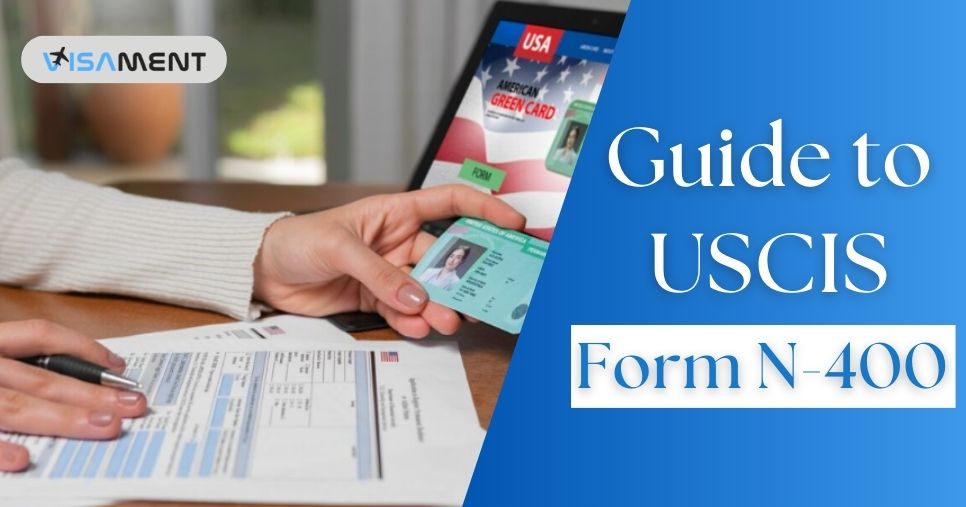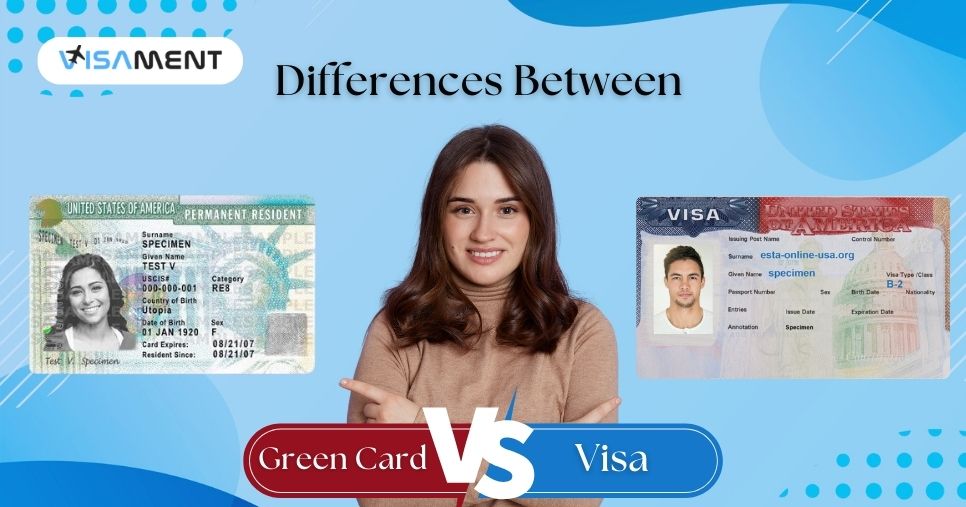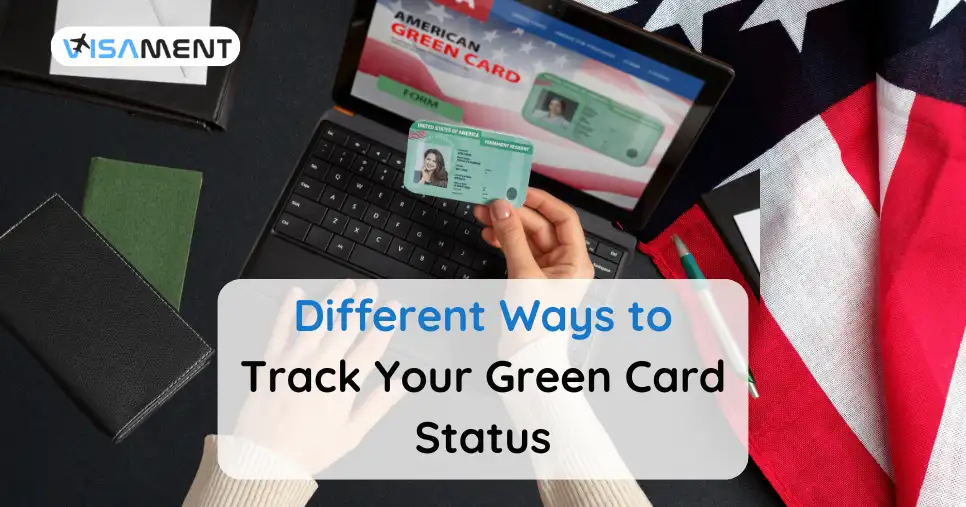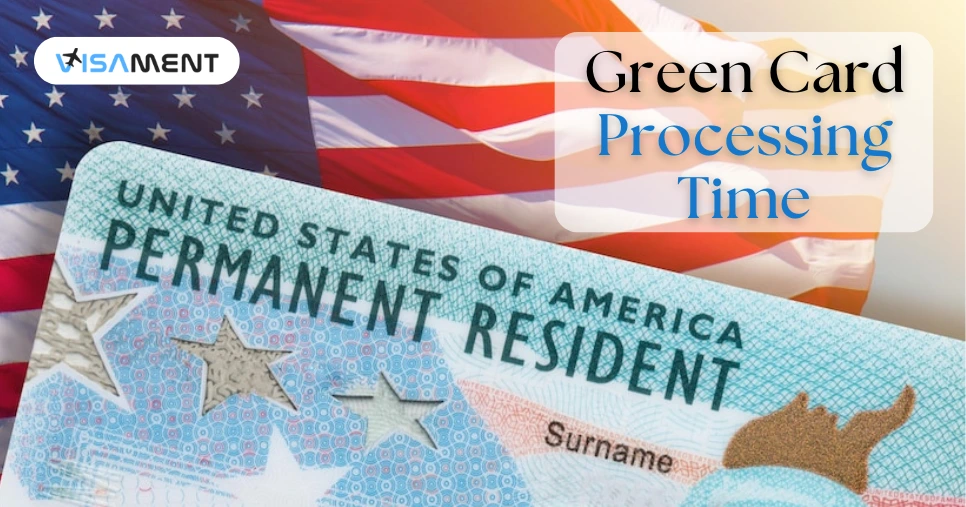An Alien Registration Number is a seven- to nine-digit identification number found on various documents from the U.S. Citizenship and Immigration Services (USCIS). When you apply for a green card in the USA, you have to provide your Alien Registration number. The Alien Registration Number is also known as the A-number, A#, or USCIS number in petitions and forms submitted to the USCIS.
What is an Alien Registration Number?
An alien registration number is an identification number used by non-citizens that can be found on various documents. These numbers are used to track the files, forms, and petitions of a person over the years by the U.S. Citizenship and Immigration Services (USCIS), and every individual gets a unique Alien registration number, which they can keep for a lifetime.
This A-number is also an important part of the information. In some cases, an individual gets a 7-digit A-number, so they have to add "A" before the number with a 0 after it. For example, if a person gets an Alien registration number of seven numbers, like 1234567, then he needs to add A and 0 before the given seven numbers, which will look like A01234567.
Note: Many of the Non-immigrants visitors and U.S.-born citizens do not get an alien registration number.
Who Can Get an Alien Registration Number?
Here are some key points to help determine who is eligible for an Alien Registration Number.
- For the person who applies for a green card.
- Immigrants who want to live permanently in the United States of America.
- An individual on an F-1 Student visa with work authorization is allowed to get an Alien Registration Number.
Note: Non-U.S. citizens living in the USA for a short period on a business or tourist visa are not eligible to obtain an Alien Registration Number, as they are not permanent immigrants in the US due to the short duration of their stay.
When Do I Get an Alien Registration Number?
Here are some of the cases where you will get your Alien registration number:
- When you apply for a green card.
- If you are on an F-1 student visa with a work permit.
- If you have applied for a marriage green card based on your marriage, you will get an Alien Registration Number.
- If you are the spouse of a U.S. citizen and filed an application form I-485, then you will get an A-number.
- If you are applying for a marriage-based green card from outside the US, you will receive your Alien Registration Number after the consular interview at the U.S. Consulate.
- If you are the spouse of a green cardholder and filed your I-485 form after approval of your I-130 petition, then you will get your Alien Registration Number.
How to Find Your Alien Registration Number?
You can find your Alien registration number on the documents that you received through the USCIS, on the forms, petitions, files, and approval notices that you all get from the USCIS. You can find your alien registration number on the various documents, which are given below.
On a Green Card
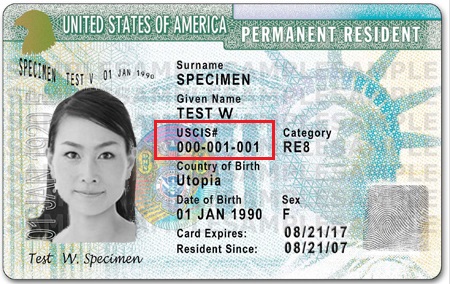
On the green card, you can find your Alien registration number on the front side of the card. However, not everyone who has a green card gets an A-number. USCIS gives an Alien Registration Number to every permanent resident in the USA. Additionally, some non-immigrant persons who hold an employment-authorized permit can obtain an A-number.
On an Immigrant Visa
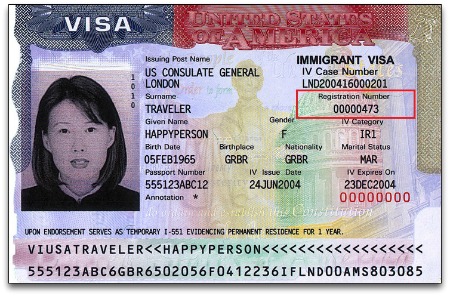
You will find an alien registration number on the top right corner of your immigrant visa, which is known as the Name of Registration number. An immigrant visa is also called a visa stamp or visa foil.
On an EAD (Employment Authorization Document)
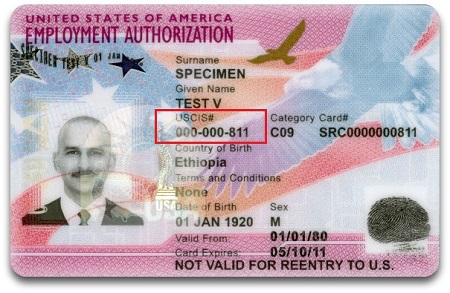
You can find your A-number on your Employment Authorization document below your surname and given name on your EAD.
On the Notice of Action

The alien registration number can also be found on Form I-797C, Notice of Action, located in the top right corner of the document, below the application number. You will get your notice of action document from the U.S. Citizenship and Immigration Services.
On Immigrant Data Summary
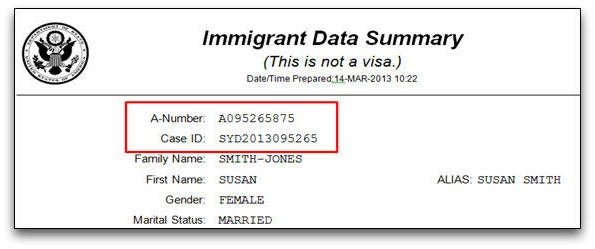
If you have applied for a green card through the US embassy or consulate, then you will get an Immigrant data summary, where you will get your Alien registration number at the top of the document.
On the USCIS Immigrant Fee Handout
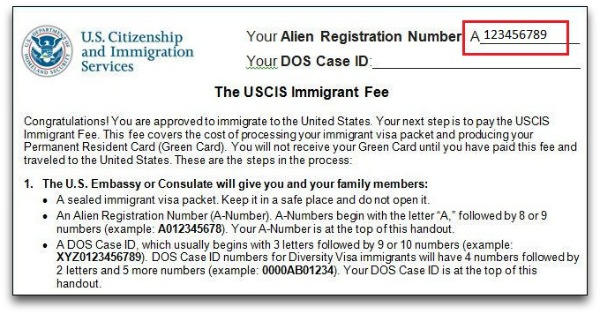
If you have applied for a green card through consular processing, then you will get an immigration fee handout from the immigration officer. On the top right corner of the document, you can find your Alien number.
Difference Between an Alien Registration Number and USCIS Case Number
On the documents, you can find your Alien Registration Number, but it will also include a USCIS case number. This number is used to check the status of the application online.
| A-Number | USCIS Case Number |
|---|---|
| This number is assigned to you | This number is assigned to your application number to apply for U.S. citizenship. |
| A number is a permanent number. | A USCIS case number is a temporary number issued for only a particular case. |
| A-number is a 7-9 digit number |
USCIS number is a 13-character code with 3 alphabets |
| An A-number can get by Permanent residents, certain visa holders, and EAD holders. | A USCIS case number can be obtained by an Alien relative, an adjustment of status, an employment authorization, or a non-immigrant worker. |
Frequently Asked Questions
A USCIS number is used to track the applications. It is a 13-character code starting with 3 letters like MSC or EAC. This number is temporarily assigned to the application and used for only particular cases or individuals.
No, the Alien Registration Number is not the same as Form I-94. The A-number is a unique number issued by the USCIS. You can find your A-number on your green card which is also known as Form I-551. In contrast, Form I-94 is an 11-digit admission record that proves a nonimmigrant’s legal entry into the US.
No, your Alien Registration Number (A-number) will not expire. Once you get an A-number from the USCIS it will be valid for a lifetime. It is like your personal ID in the US immigration system. However, it is important to check the expiry date of other documents like green cards, or visas. These documents may expire and you need to renew them to maintain your legal status in the US.
No, the Social Security Number (SSN) is not the same as an A-number. The SSN is issued by the government to eligible immigrant workers in the US who apply for it. Alternatively, USCIS issues an A-number to immigrants who apply to stay permanently in the US. A lot of immigrant workers have both an A-number and a Social Security Number.
You can find the A-number on a green card on both the front and back of the card. It is a 7,8, or 9-digit number that is different from your SSN. On the green card issued after 10th May 2010, the A-number is on the front of the card next to the picture. On older green cards issued between the years 2004 and 2010, the A-number is labeled as “A#”.
No, the USCIS Online Account Number is not the same thing as an A-number. The A-number is a nine-digit number used by the USCIS to track all the immigrants who are applying for permanent status in the US. Whereas, the USCIS online account number is only given if you choose to create an account online and acts as an extra way to help USCIS track your application.

